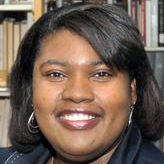Here is this week’s news of grants or gifts to historically Black colleges and universities or for programs of particular interest to African Americans in higher education.
 The School of Nursing at Yale University received a $7 million grant from the National Institute of Allergy & Infectious Diseases for a program to address disparities in HIV among Black men who have sex with men. The program will test the effects of a multi-level intervention aiming to address intersecting social and structural barriers that impede population-level reductions in the rates of new HIV infections. The program is under the direction of LaRon Nelson, a professor at the School of Nursing.
The School of Nursing at Yale University received a $7 million grant from the National Institute of Allergy & Infectious Diseases for a program to address disparities in HIV among Black men who have sex with men. The program will test the effects of a multi-level intervention aiming to address intersecting social and structural barriers that impede population-level reductions in the rates of new HIV infections. The program is under the direction of LaRon Nelson, a professor at the School of Nursing.
Historically Black Xavier University of Louisiana has received funding from the National Institutes of Health for its Mobile Outreach for Laboratory Enrichment. Initiated at the beginning of the fall 2021 semester, the XULA-MOLE program seeks to influence and increase the interest of high school students of color in the STEM and biomedical fields. It is a collaboration between the XULA-MOLE team and three local high schools with student populations greater than 80 percent Black and African American.
 The John B. Cade Library at historically Black Southern University in Baton Rouge, Louisiana recently received $182,199 in funding from the National Endowment for Humanities. The grant will allow the library to further digitize, catalog, and disseminate several archival collections. This includes the contributions of Black people to the state of Louisiana at the height of the civil rights movement. Dawn Kight, dean of libraries at Southern University will lead the grant project.
The John B. Cade Library at historically Black Southern University in Baton Rouge, Louisiana recently received $182,199 in funding from the National Endowment for Humanities. The grant will allow the library to further digitize, catalog, and disseminate several archival collections. This includes the contributions of Black people to the state of Louisiana at the height of the civil rights movement. Dawn Kight, dean of libraries at Southern University will lead the grant project.
The Perelman School of Medicine at the University of Pennsylvania received a $10 million grant from the National Institutes of Health for an ambitious study to assess the impact of a multi-component intervention addressing both environmental and economic injustice on health and well-being on 60 predominantly Black neighborhoods in Philadelphia. At the community level, the study will include tree planting, vacant lot greening, trash cleanup, and rehabilitation of dilapidated, abandoned houses. For households, the study will help connect participants to local, state, and federal social and economic benefits, including food, unemployment, and prescription drug assistance, provide financial counseling and tax preparation services, and offer emergency cash assistance. The overall goal is to show that deeply entrenched racial health disparities can be closed by concentrated investment in Black neighborhoods.
Tuskegee University, the historically Black educational institution in Alabama, received a $400,000 grant from the Synchrony Foundation, which is the philanthropic arm of Synchrony, a leading consumer financial services company. The funds will be used for scholarships for students at the university’s College of Veterinary Medicine.










